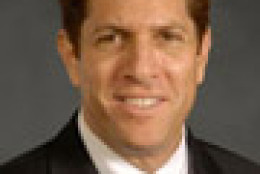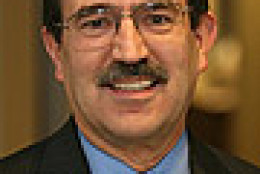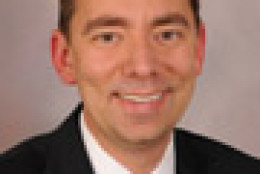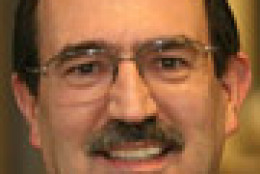general schedule
-
The Government Accountability Office is in the middle of an ongoing, multi-year study on the pay system, and taking its findings to Capitol Hill. A House Oversight and Government Reform subcommittee looked at the General Schedule last week. Jessica Klement is legislative director of the National Active and Retired Federal Employees Association. She shared her own ideas of how to reform the General Schedule on In Depth with Francis Rose.
July 22, 2014 -
Defenders of the General Schedule are hard to find, if you can find them at all. All the stakeholders agree the GS setup doesn't work for the federal government in the 21st century. On In Depth with Francis Rose, Federal News Radio Senior Correspondent Mike Causey said even the names of the slots on the schedule don't really work right any more.
July 21, 2014 -
Restructuring the way the federal government organizes its employees is all of a sudden a big focus on Capitol Hill. Bills to change or kill the General Schedule are already floating around, and more may come. The House Oversight and Government Reform Subcommittee on the Federal Workforce, U.S. Postal Service and the Census looked at the future of the General Schedule with witnesses from the Office of Personnel Management, the Federal Managers Association, the American Federation of Government Employees and the Government Accountability Office. Robert Goldenkoff is Director of Strategic Issues at the GAO. He told the committee HR management in the Federal government has been on the GAO's High Risk list since 2001, but he said not all the news is bad on In Depth with Francis Rose.
July 21, 2014 -
When your political bosses tell you to bend over and await further instructions, chances are you are about to be reformed. So if you've been there and done that, get ready for another exercise in excellence, Senior Correspondent Mike Causey says.
July 21, 2014 -
There's growing consensus on Capitol Hill and from the Obama administration that the pay and personnel system used by the federal government since 1949 and infrequently updated is showing its age — and due for a major facelift. Lawmakers probed the General Schedule system Tuesday during a hearing before the House Oversight and Government Reform Subcommittee on the Federal Workforce, U.S. Postal Service and the Census.
July 15, 2014 -
About 1.5 million white collar federal employees get paid according to the General Schedule. But the system predates the personal computing era. Today, a Congressional panel dares to raise the question: Is the general schedule viable in 2014? John Palguta is the vice president for policy at the Partnership for Public Service. He joined Emily Kopp on the Federal Drive to discuss why the current system is not viable.
July 15, 2014 -
More than half of senior executives surveyed by the Senior Executives Association are reporting "low" or "very low" morale with their jobs. The problem lies with a pay-for-performance system where some supervisors make less money than the people they lead. Increasing numbers of senior executive service members are ready to leave the federal government altogether.
May 02, 2014 -
Plenty of conversations are circulating about changes to the General Schedule and problems with federal hiring. Agencies are looking for a way to better keep track of their employees' performance and measure their progress. And industry says it has a solution. Training and performance management is in one place. Terry Miller, chief operating officer at Visionary Integration Professionals, was Francis Rose's guest on Industry Chatter.
April 24, 2014 -
The Partnership for Public Service has come up with a new set of civil service reform ideas. Together, they would modernize the decades-old General Schedule system to better reflect the work of today's federal employees. John Palguta, vice president for policy, describes problems with the GS system to Federal Drive hosts Tom Temin and Emily Kopp.
April 08, 2014 -
About 70 percent of federal employees are against introducing a performance-based system for calculating pay raises, according to the 2013 Federal Employee Viewpoint Survey. But that's one of the proposals from the Partnership for Public Service and Booz Allen Hamilton in their plan to reform the General Schedule system. Jeff Neal, senior vice president of ICF International and former chief human capital officer at the Department of Homeland Security, gave his ideas for reforming GS pay scales on In Depth with Francis Rose.
April 03, 2014 -
Major reforms to the General Schedule are the solution for problems with federal hiring and promotion, according to new research from the Partnership for Public Service and Booz Allen. They're proposing reforms like cutting down to five pay scales instead of 15. They also propose replacing tenure-based pay increases with performance-based ones.
April 02, 2014 -
Today's General Schedule system is a "relic of a bygone era," according to a new report from the Partnership for Public Service and Booz Allen Hamilton. It says the government needs to be more attuned to the private sector. At least one federal union is criticizing the plan. Ron Sanders, vice president of Booz Allen Hamilton, discussed the details of the report with Federal Drive hosts Tom Temin and Emily Kopp.
April 02, 2014 -
The General Schedule was designed for a federal workforce that no longer exists, says former DHS CHCO Jeff Neal. But there are ways to fix it.
April 02, 2014 -
A new report from the Partnership for Public Service and Booz Allen Hamilton calls for essentially throwing out the 65-year-old General Schedule system, comprised of 15 separate grade levels, and replacing it with five broad work levels. The report also calls for changes to the way federal pay is calculated and recommends setting up a governmentwide pay-for-performance process.
April 01, 2014 -
The 65-year-old pay system isn't cutting it with a younger workforce.
March 20, 2014










